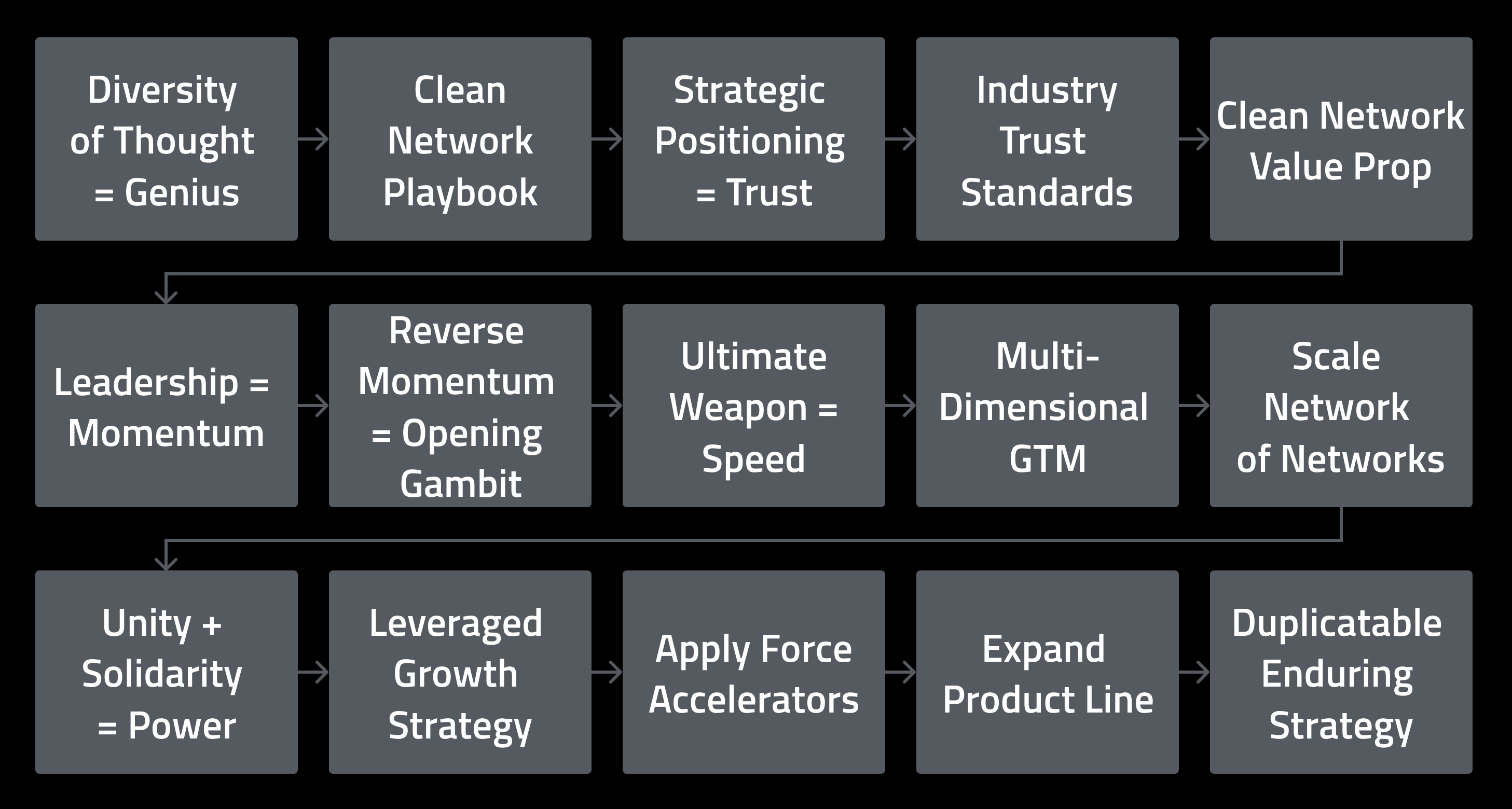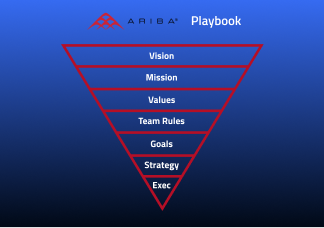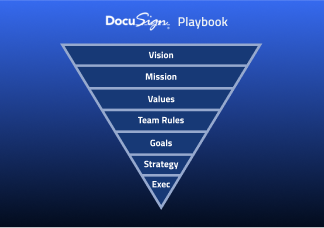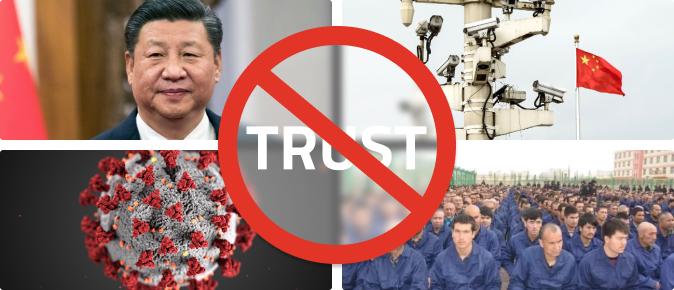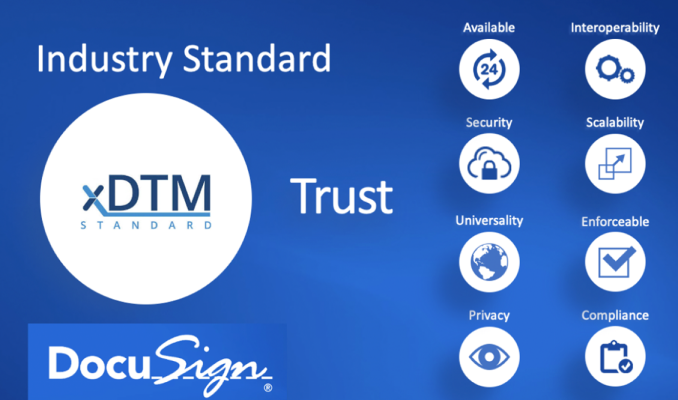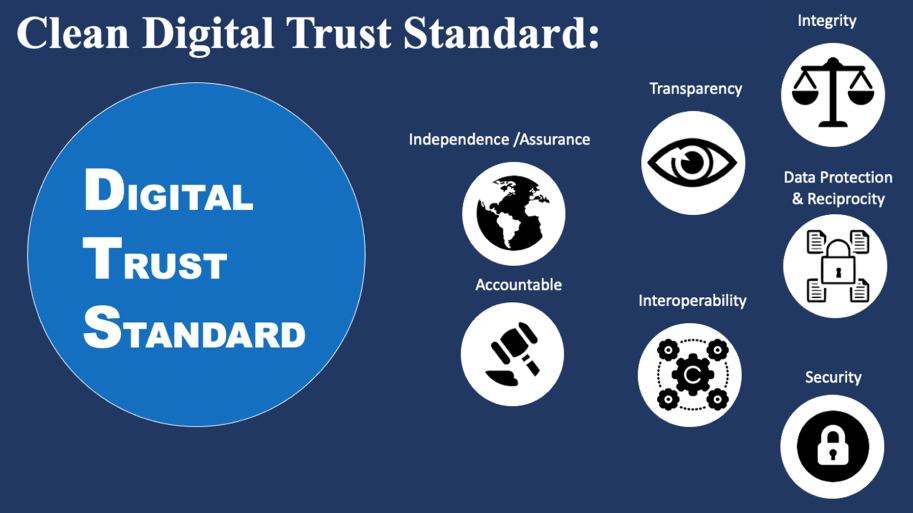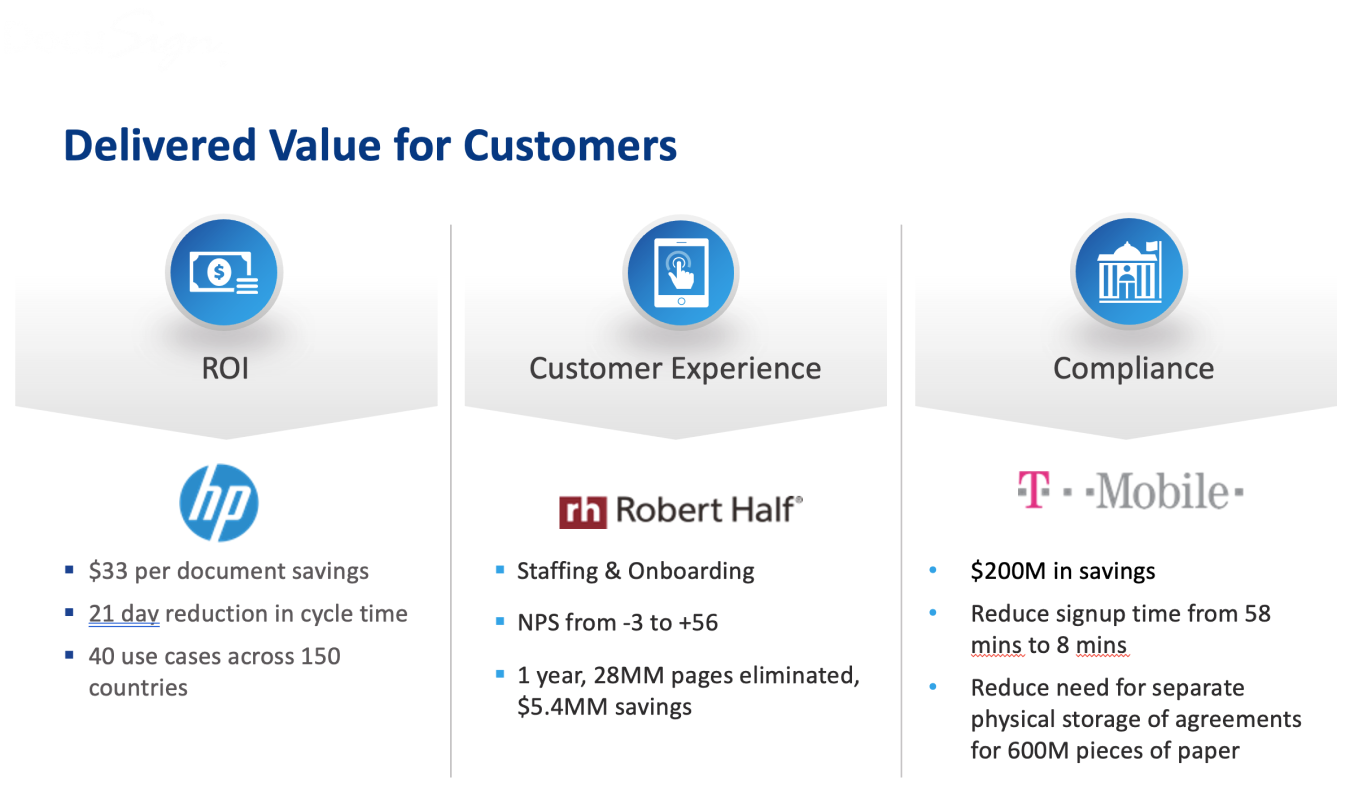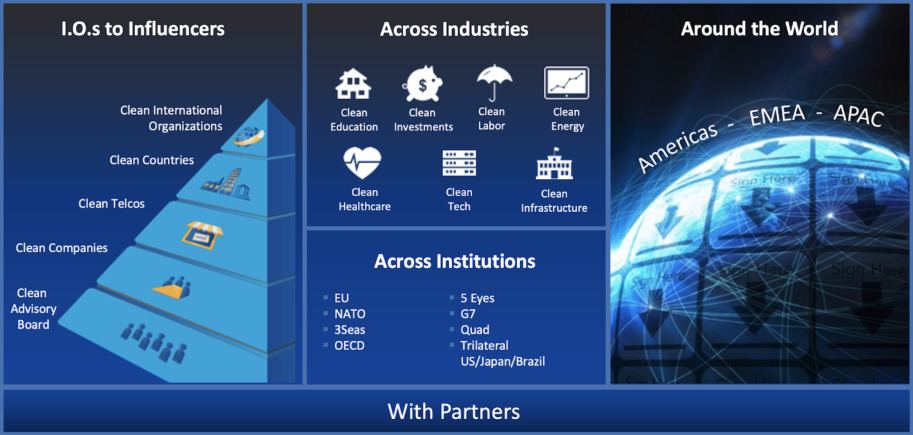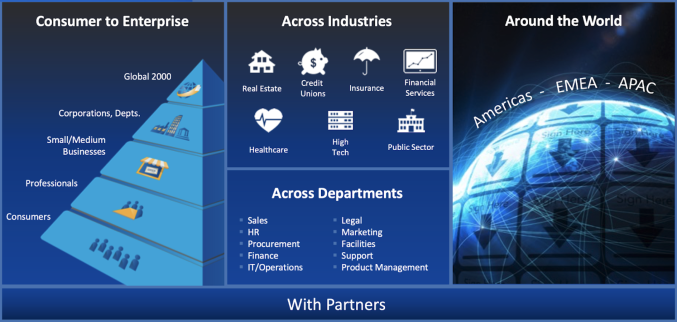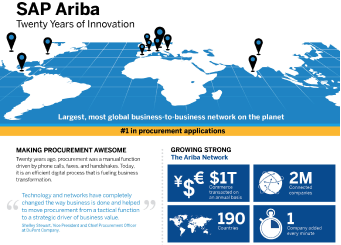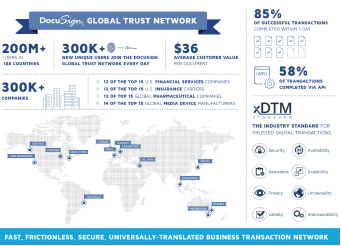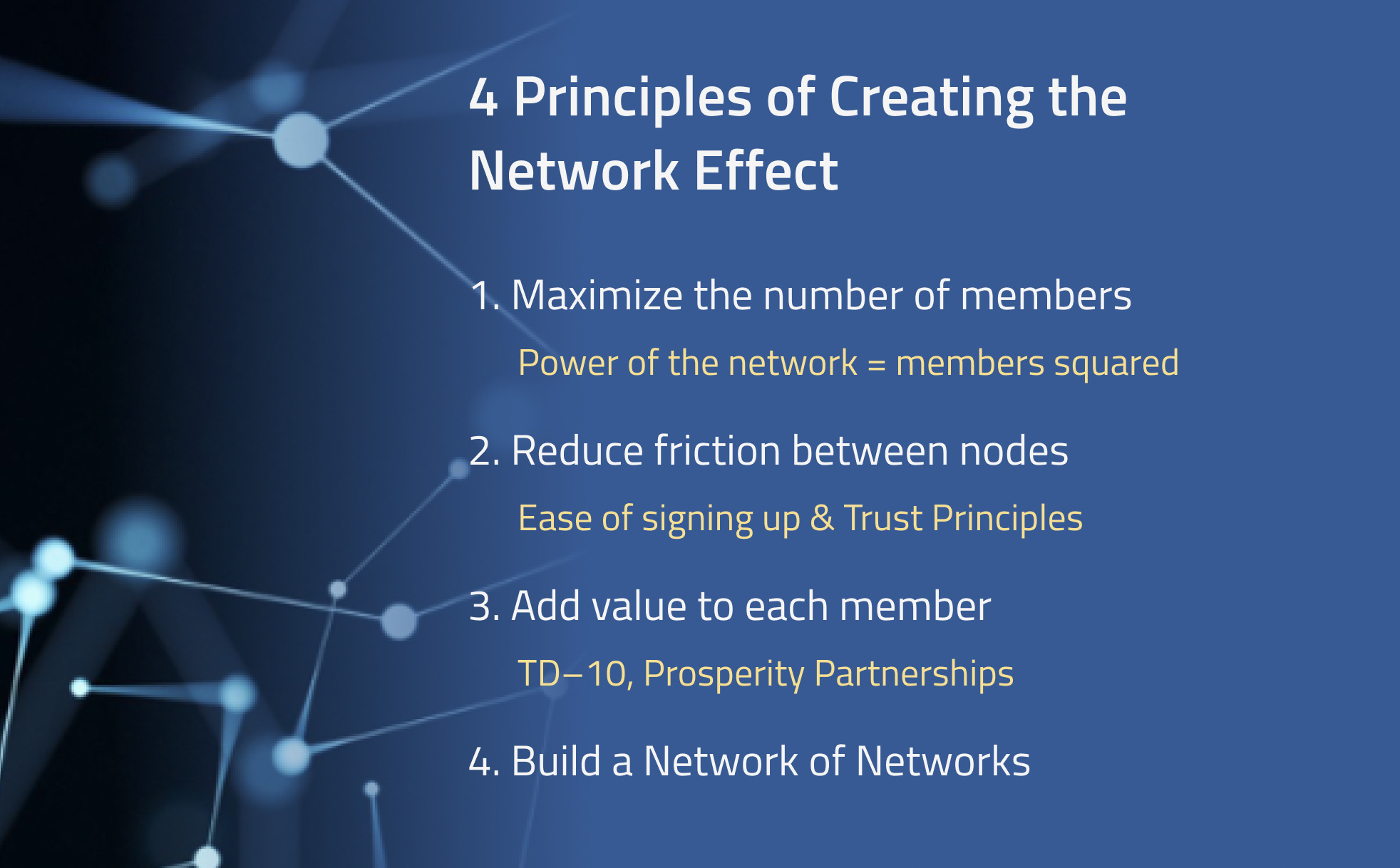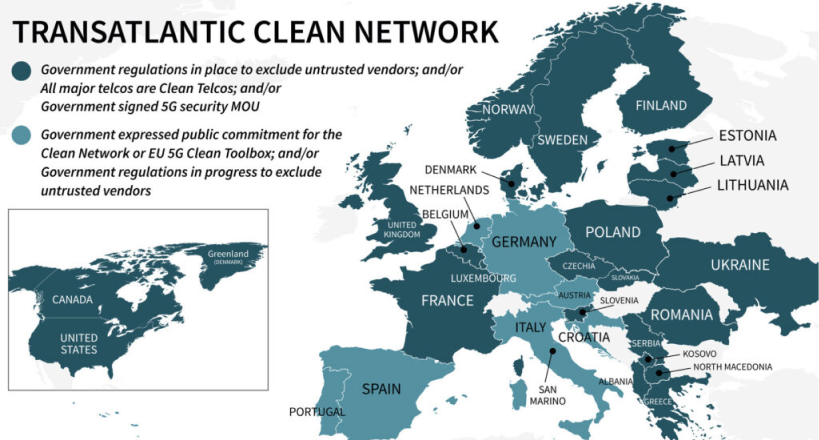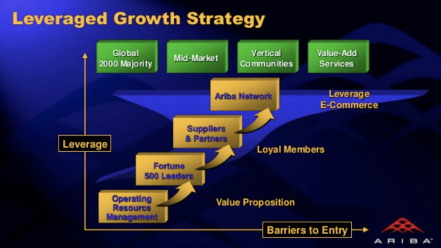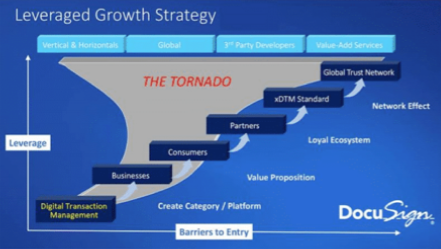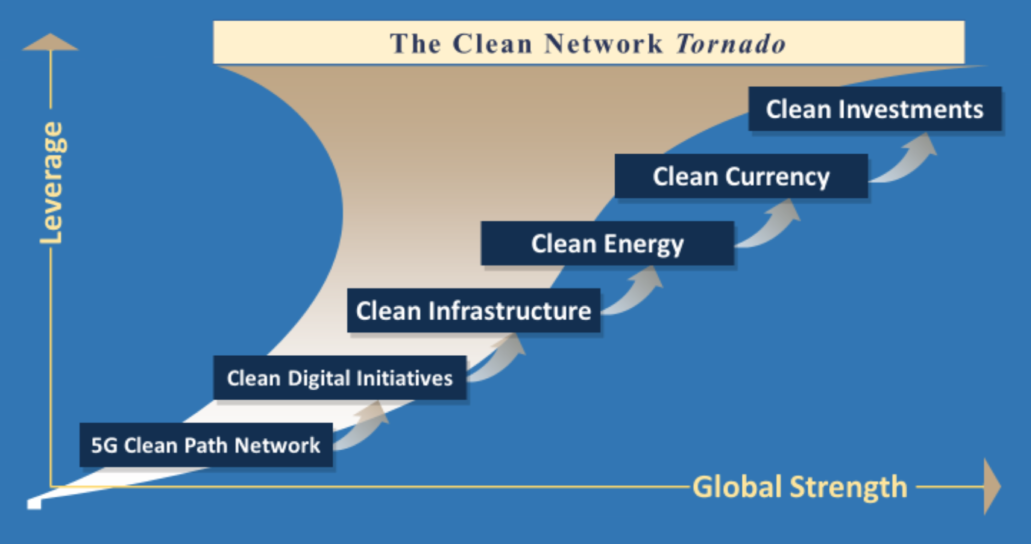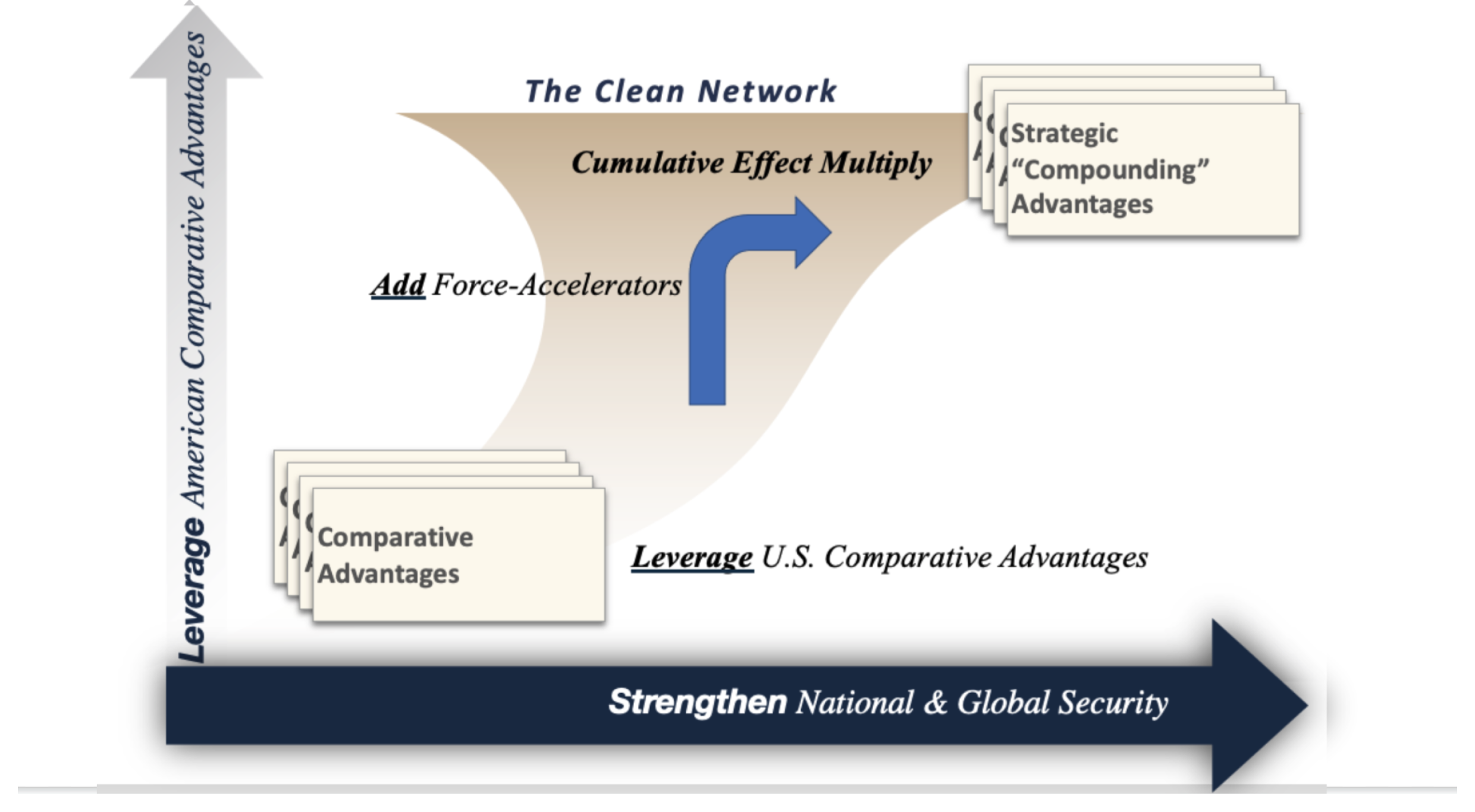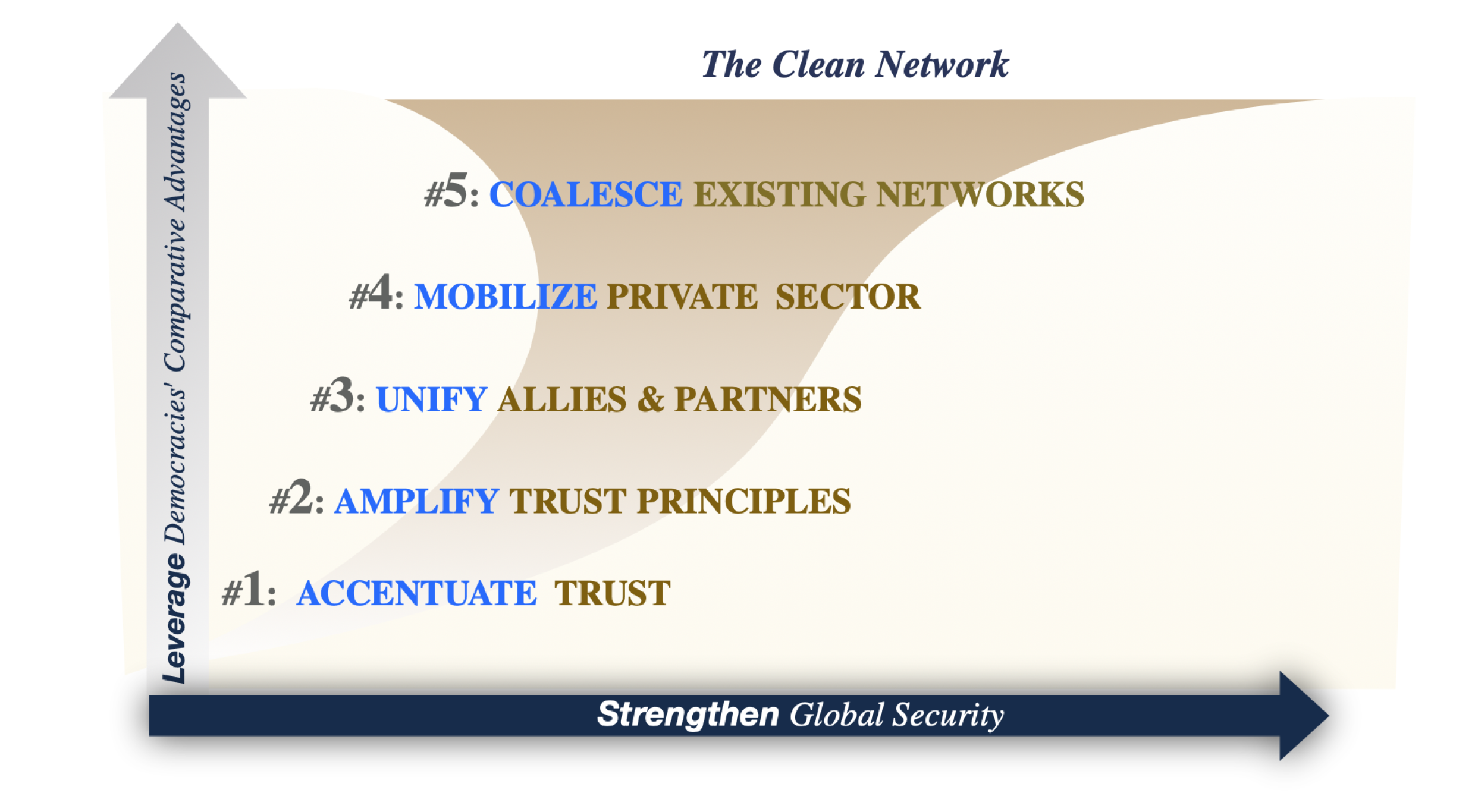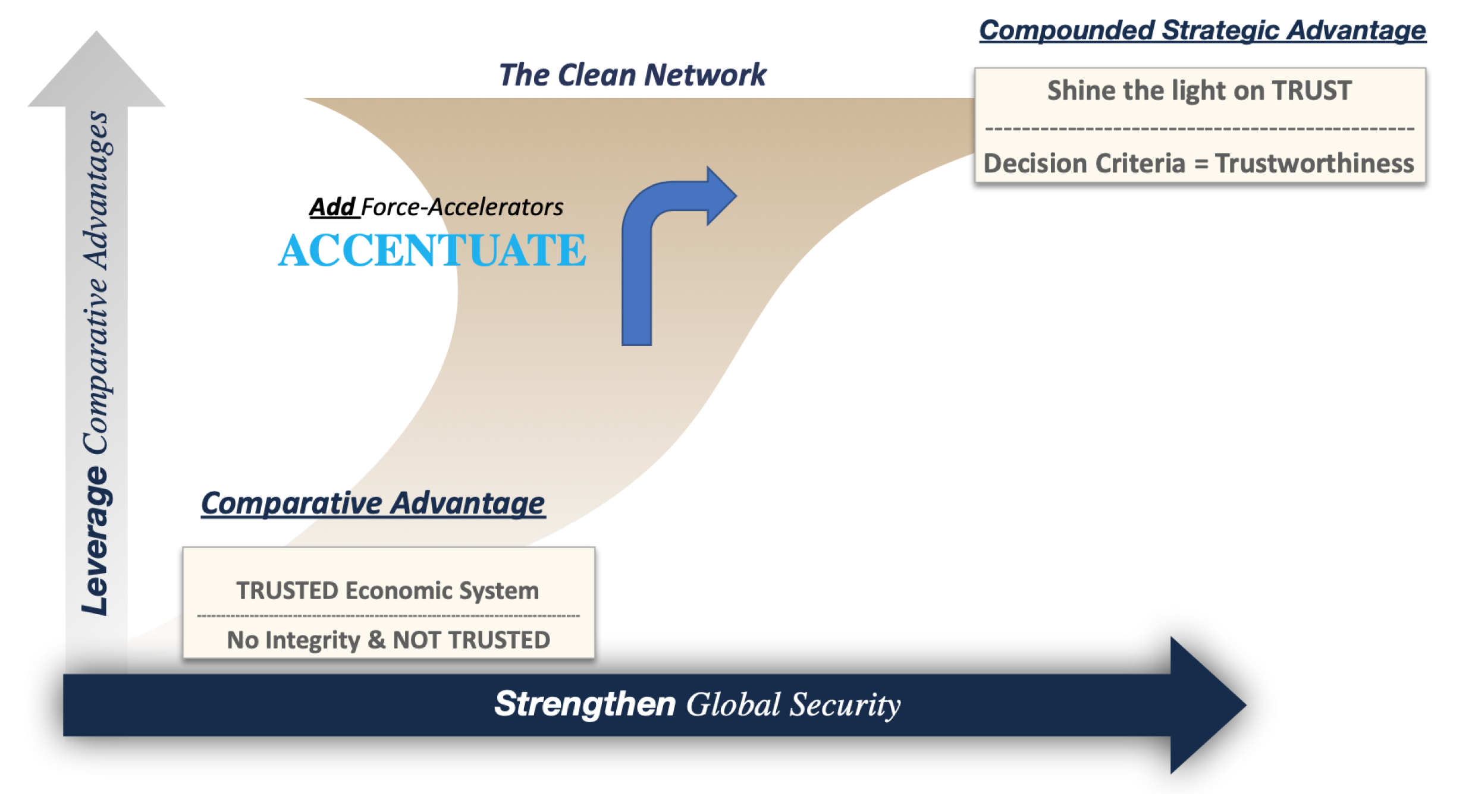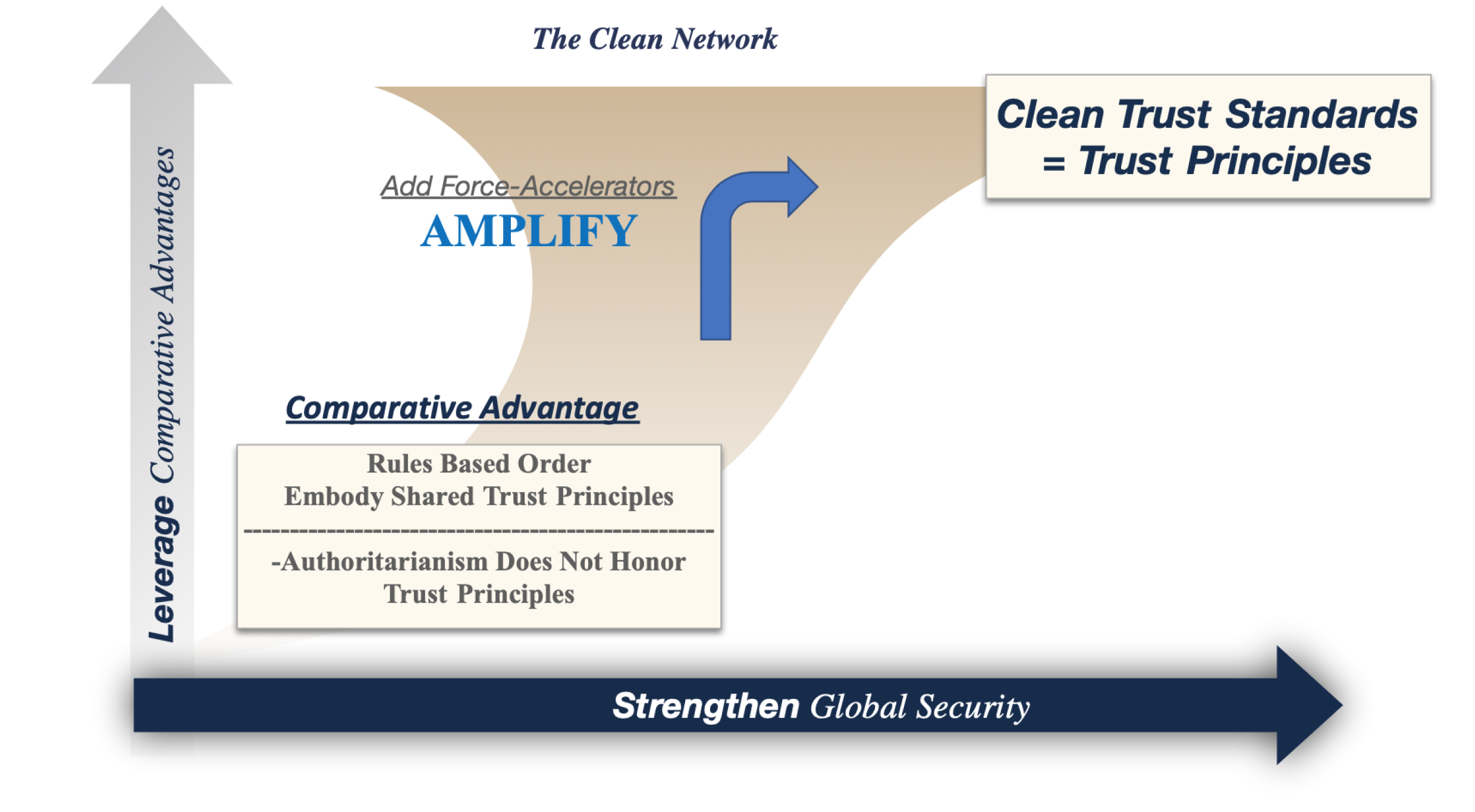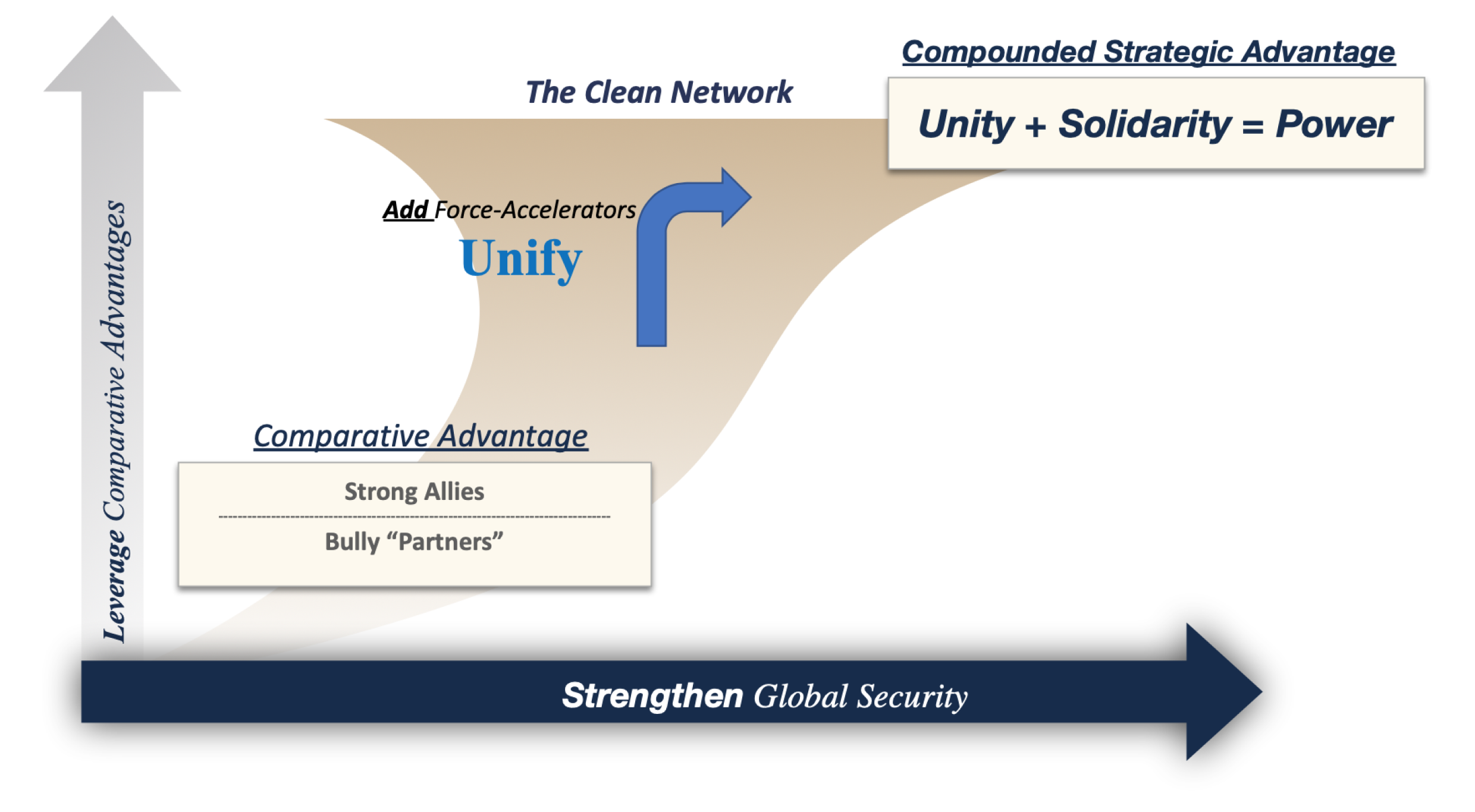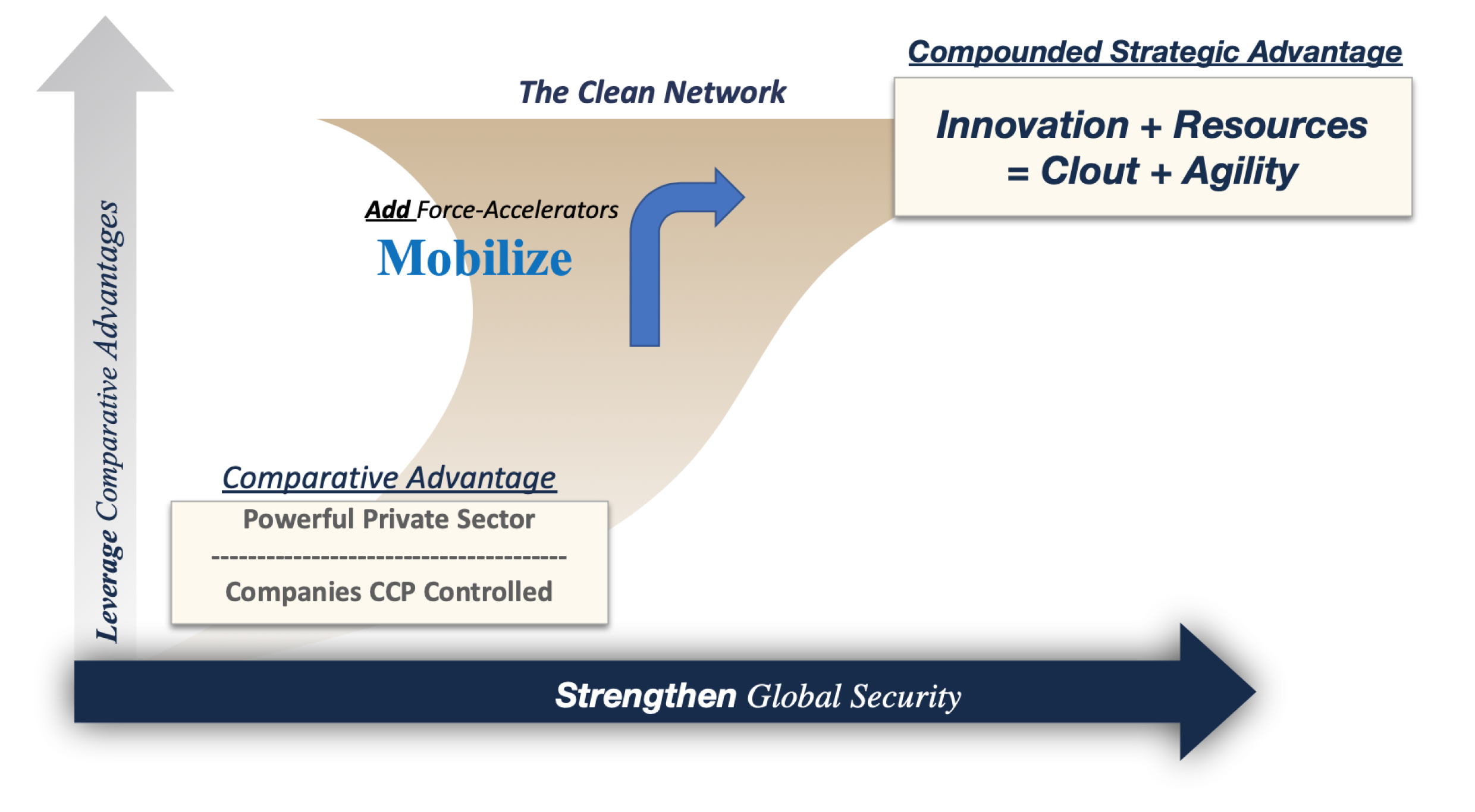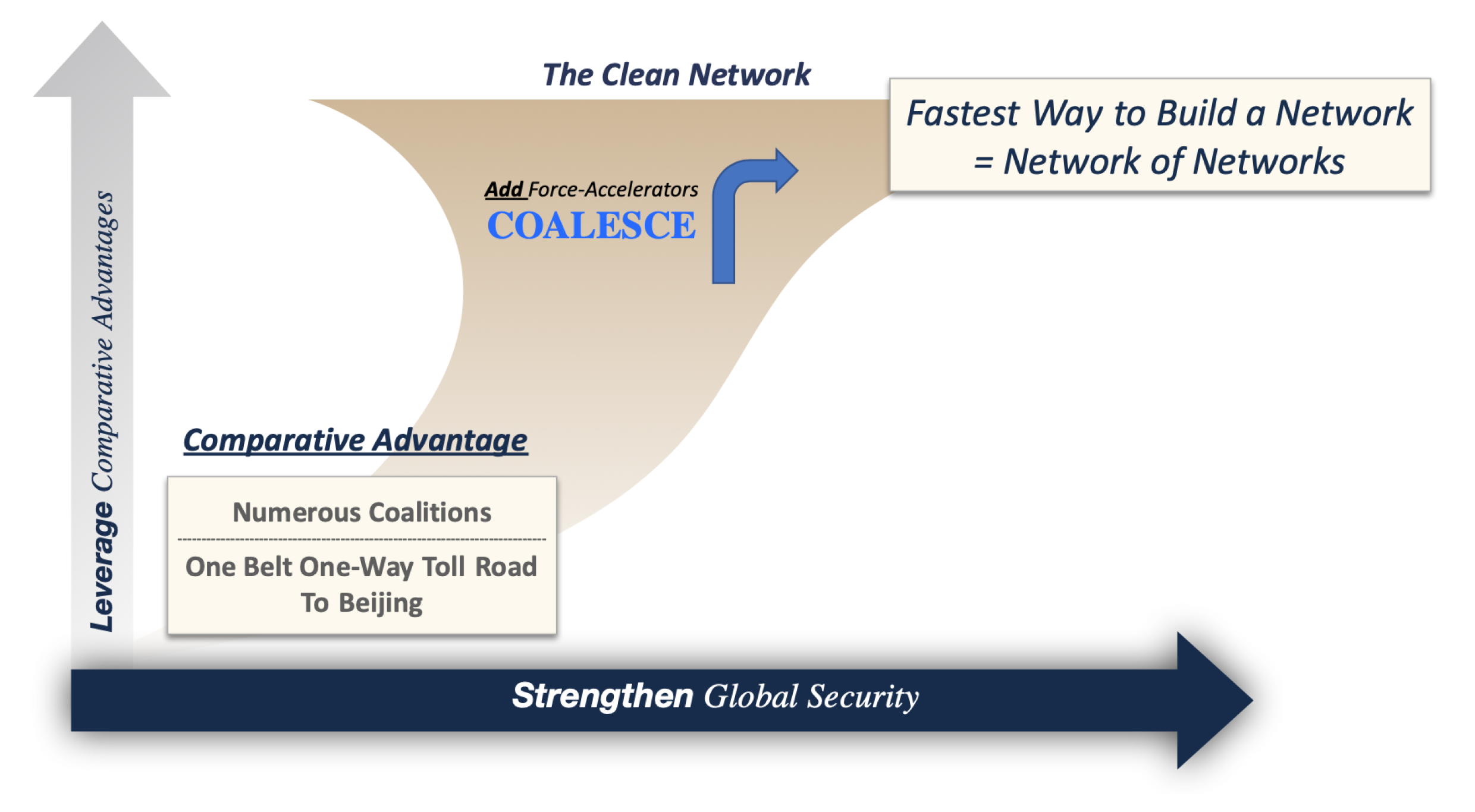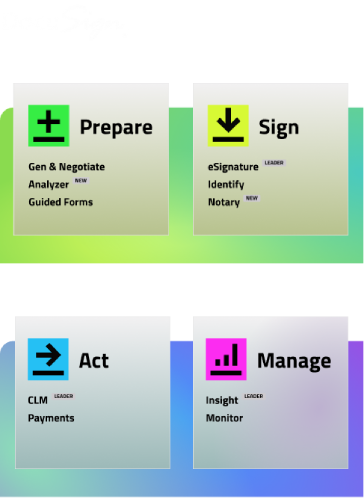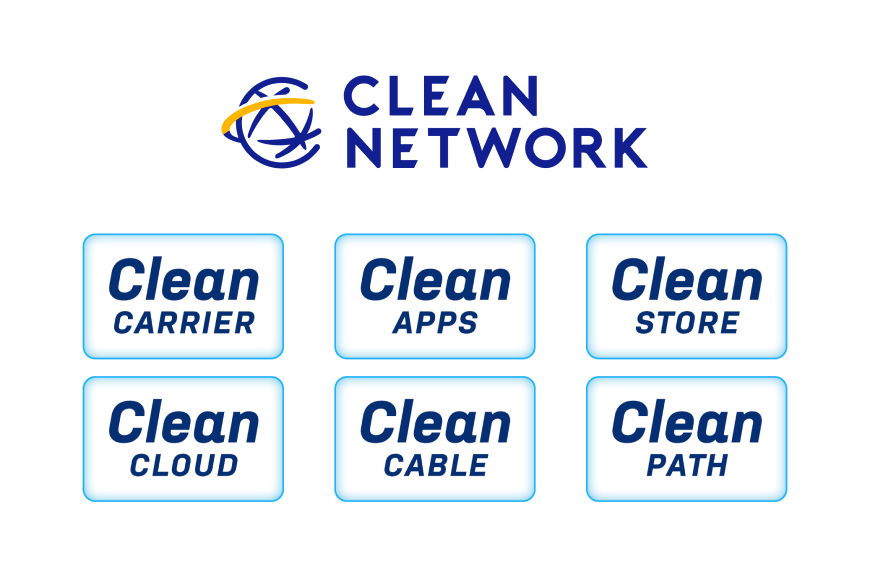
Strategy
Based on “the Silicon Valley Art of Economic Warcraft,” the Clean Network strategy to combat Chinese aggression had been honed to perfection through a series of successful business ventures.
The Clean Network team combined the best of Silicon Valley and the U.S. State Department to create a new kind of diplomacy called Tech Statecraft. It emphasizes Silicon Valley’s genius for innovation and entrepreneurship in partnership with the State Department’s commitment to diplomacy, foreign policy and national security.
Transformational Strategy
Silicon Valley strategy and foreign policy tools combine in tech statecraft

- Category Kingmaking
- Economic Warcraft
- Technology
- Massive Networks
- Innovation

- National Security
- Diplomacy
- Foreign Policy
- Alliances
- Administration

- Global Economic Security
- Tech Diplomacy
- Global Trust Standards
- Clean Network
- Public/Private Partnership
The Clean Network team mapped out a series of strategic “chess moves” to steal momentum from China’s champion, Huawei, and quickly turn the tables on the CCP. Each step is outlined below.
Strategy = Sequencing
A Series Of Chess Moves Modeled On Decades Of Success
Knowing that “diversity of thought is the catalyst for genius,” Krach built his Clean Network team by bringing together some of the finest foreign service officers with a dozen private-sector executives, technologists, and entrepreneurs. The combination was “magical” — something Krach calls “a 60-60 deal.”
Diversity of Thought = Genius
The Clean Network strategy borrowed heavily from Krach’s classic playbook. The strategies tested in Silicon Valley proved to apply just as well to the world of statecraft and diplomacy.
Clean Network Playbook
Chinese law requires all companies and individuals to share information with the state–the organization responsible for conducting genocide on a massive scale in Xinjiang, withholding information about the Coronavirus, and maintaining and expanding the world’s most insidious surveillance state.
Strategic Positioning = Trust
No One Trusts The Ccp – A Glaring Strategic Weakness
Who do you trust with your…
- Citizens’ personal data?
- Co’s proprietary technology?
- Co’s proprietary technology?
NOT the Chinese Communist Party.
After 60-odd bilateral meetings with his counterparts, Krach said, “They’d often say, ‘Well, they are an important trading partner.’ Then, they would lean in and whisper, ‘But we don’t trust them.’ Trust is the most important word in any language. In the software business, trust was the basis of every relationship. I used to say: we’re not in the software business, we’re in the trust business. The U.S.’s strategic positioning needs to be all about trust.”
In business, companies cooperate to develop industry standards. This sets the rules of the ballgame. The Clean Network trust standard established requirements to participate in members’ markets. If you steal intellectual property, use slave labor, abuse the environment or fail to be transparent, you’re shut out.
Industry Trust Standards
Global Trust Standards, Like Industry Standards,
Help Level The Playing Field
Government efforts had failed before the Clean Network because US officials would simply demand that allies “Don’t buy Huawei.” Nobody wants to be told what to do. Krach’s idea: treat countries and companies like customers — who are always right. And give them a compelling value prop.
Clean Network Value Prop
The Clean Network Offered A Compelling Value Prop
Safeguard Citizen Data
US Tech Expand Operations
Private Sector Investment
Prosperity Partnership
Security Blanket
Supply Chains
US Financing
Your National Security
In technology, everyone wants to go with the leader — and leadership is determined by momentum — not size. The Clean Network team needed to reverse Huawei’s momentum to displace them as a leader.
Leadership = Momentum
Huawei Had All The Momentum – That Had To Stop
![]()
The Clean Network’s Momentum and Secret Sauce

By Michael Mink – December 3, 2020
May 18, 2020, the 5G Trifecta announced which represents the execution of the crucial onshoring of TSMC’s semiconductors, locking down on Huawei’s advanced semiconductors and the global roll out of the Clean Path stratagem three major accomplishments achieved early in the Clean Network campaign.
“In technology markets, everyone wants to go with the LEADER. In a rapidly changing market like 5G, leadership is not determined by size but by MOMENTUM.
Huawei had all the momentum and seemed unstoppable. Our strategic imperative was to REVERSE THEIR MOMENTUM with the 5G Trifecta OPENING GAMBIT and take away Huawei’s lead with the ULTIMATE WEAPON which is SPEED of execution.”
The team’s opening gambit to steal Huawei’s momentum was dubbed “the 5G Trifecta” by the press. Securing TSMC’s commitment to build semiconductors in the U.S.; blocking Huawei’s access to chips; and declaring that any data that passed in and out of any U.S. diplomatic facility could not have touched a Huawei antenna had China’s tech champion on its heels.
Reverse Momentum = Opening Gambit
5-G Trifecta Puts Huawei On The Defensive
![]()
U.S. Scores ‘ 5G Trifecta in competition with China.

By Dave Boyer – The Washington Times – May 18, 2020
The execution of the crucial onshoring of TSMC’s semiconductors, the critical locking down of advanced semiconductors for Huawei, and the strategic roll-out of the innovative Clean Path strategy instantly put Huawei on heels. This trifecta of accomplishments served as the launchpad for the Clean Network team’s global diplomatic campaign to defeat the CCP’s 5G plans.
Unlike the typical government approach, the team employed a multi-dimensional go-to-market strategy — calling on leaders all the way up and down the food chain — in both public and private sectors. Krach knew many key players from his decades as a business leader and entrepreneur. Calling on government leaders, as well as CEOs, showed the beauty of the public/private 60-60 partnership.
Multi-Dimensional GTM
The Team Targeted Public And Private Sector Leaders
Krach’s career is marked by his ability to create and scale massive networks. The team applied the same four principles that grew Ariba to a $3.7Trillion/year commerce network and grew DocuSign to 1 billion users and 1 million companies to quickly scale the Clean Network.
Scale Network of Networks
Silicon Valley Principles Quickly Grew The Clean Network
One of the most attractive elements of the Clean Network is the protection it offers to members who are threatened by retaliation from the CCP. There’s power in unity and solidarity.
Unity + Solidarity = Power
China Can’t Retaliate Against The Whole World
“”Countries and companies are terrified of China’s retaliation. The CCP cannot retaliate against everyone. That is where the E.U. comes in, the Transatlantic Alliance comes in, NATO comes in.” “There is strength in numbers and there’s also power in union and solidarity.”
The Clean Network’s leveraged growth strategy builds from a relatively small, defensible beachhead to a much broader scale by layering success on success.
Leveraged Growth Strategy
From A Defensible Beachhead, Success Builds On Success
“Force Accelerators” leverage U.S. strategic advantages to strengthen global security and accelerate growth.
Apply Force Accelerators
To Strengthen Global Security and Create the Tornado Network
Effect add Force Accelerators to Strategic Advantages.
With the world’s most trusted economic system and most powerful military, the US has a well-established reputation for being a trustworthy partner and defender of freedom. In contrast, world leaders know Beijing can’t be trusted.
Apply Force Accelerators
#1: Defend Freedom
With Reciprocity, Transparency, Fairness & Enforcement
The US and our allies operate by a set of shared values and trust principles that the CCP’s authoritarian regime does not honor.
Apply Force Accelerators
#2: Amplify Shared Values
With Clean Trust Standards And Principles
There’s strength in numbers. The US’s long, trusted relationships with allies give power to the Clean Network, while China stands alone.
Apply Force Accelerators
#3: Unify Allies
Strength And Power Through Unity And Solidarity
The US and our allies have fostered strong, free, innovative private sector companies, while China’s companies are under the thumb of the PRC and CCP. Creative economic collaboration between innovative allies can mount a powerful, flexible response to China aggression.
Apply Force Accelerators
#4: Mobilize Private Sector
Economic Collaboration & Strength In Numbers Against Retaliation
The U.S. and our allies have already built a broad array of strategic alliances and networks. Combining networks of networks enables rapid growth and broad adoption of Clean Network trust principles.
Apply Force Accelerators
#5: Connect Existing Networks/initiatives
By Integration, Branding & Overarching Umbrella Network
The Clean Network team employed a well-established business strategy that’s not often practiced in government — expanding the product line to keep building momentum while continuing to keep the CCP off balance.
Expand the Product Line
Business Strategy Applied To Government:
Expand The Product Line To Keep Building Momentum
Duplicatable Enduring Strategy
U.S. Policy on China May Move From ‘America First’ to America & Co.
By Peter Coy– Bloomberg Businessweek – December 9, 2020
“Seven or eight months ago, it looked like Huawei was going to run the table. They announced they had 91 contracts, including 47 in Europe. Now, the company has only about a dozen contracts outside China.”
The rapid international adoption of the Clean Network “proved that China Inc. is beatable, and exposed their biggest weakness, which is lack of trust.”
The 5G effort of the Clean Network provides a “beachhead” in a wider battle to unite against Chinese economic pressure in everything from investment to strategic materials.
 Krach highest-ranking State Dept Official since 1979 in Taiwan
Krach highest-ranking State Dept Official since 1979 in Taiwan

